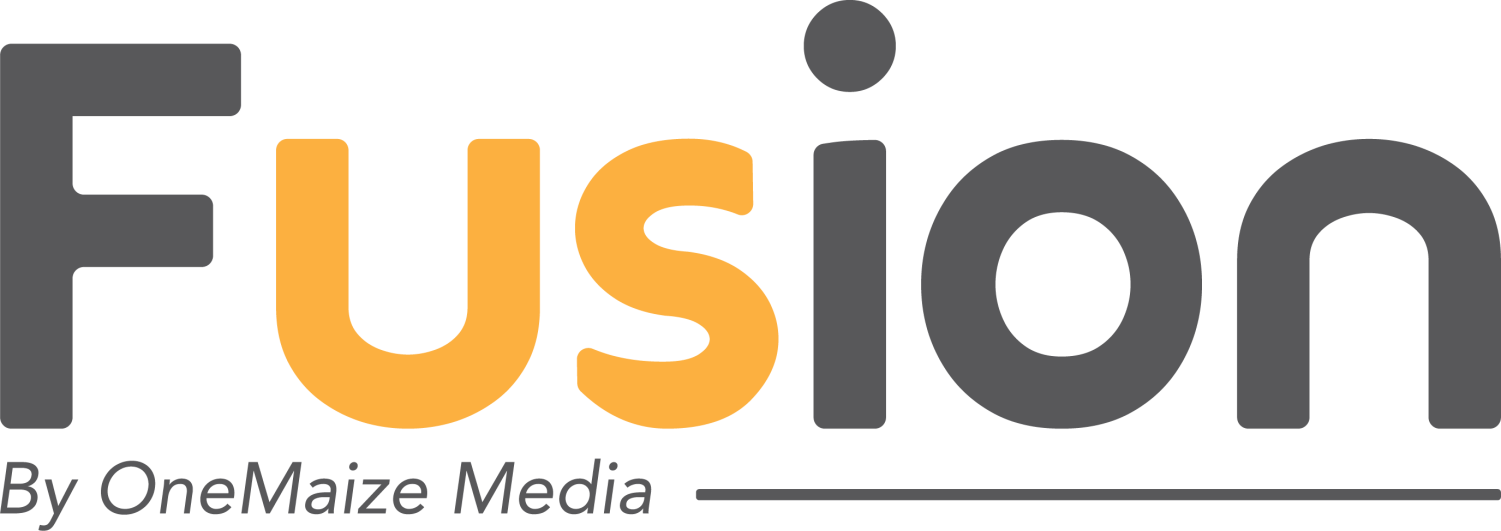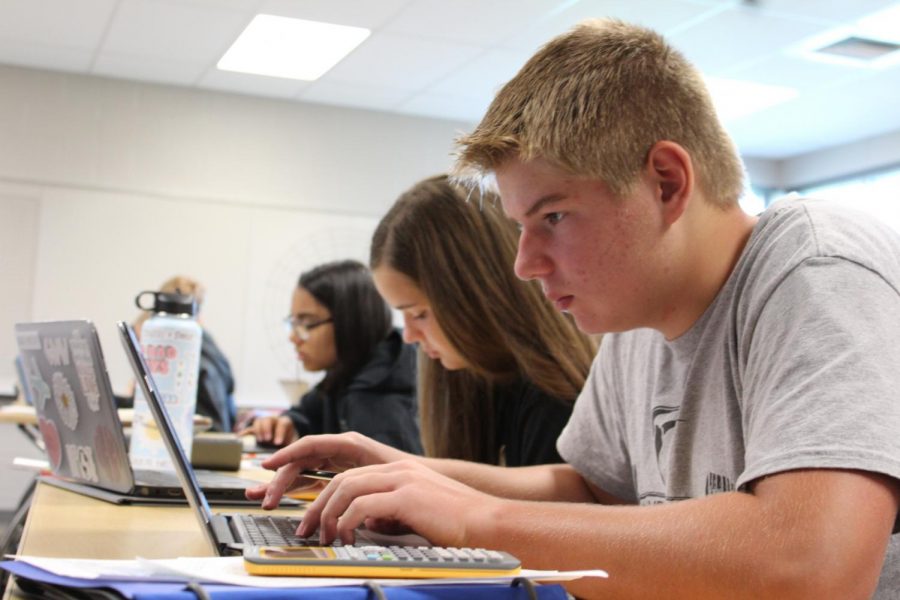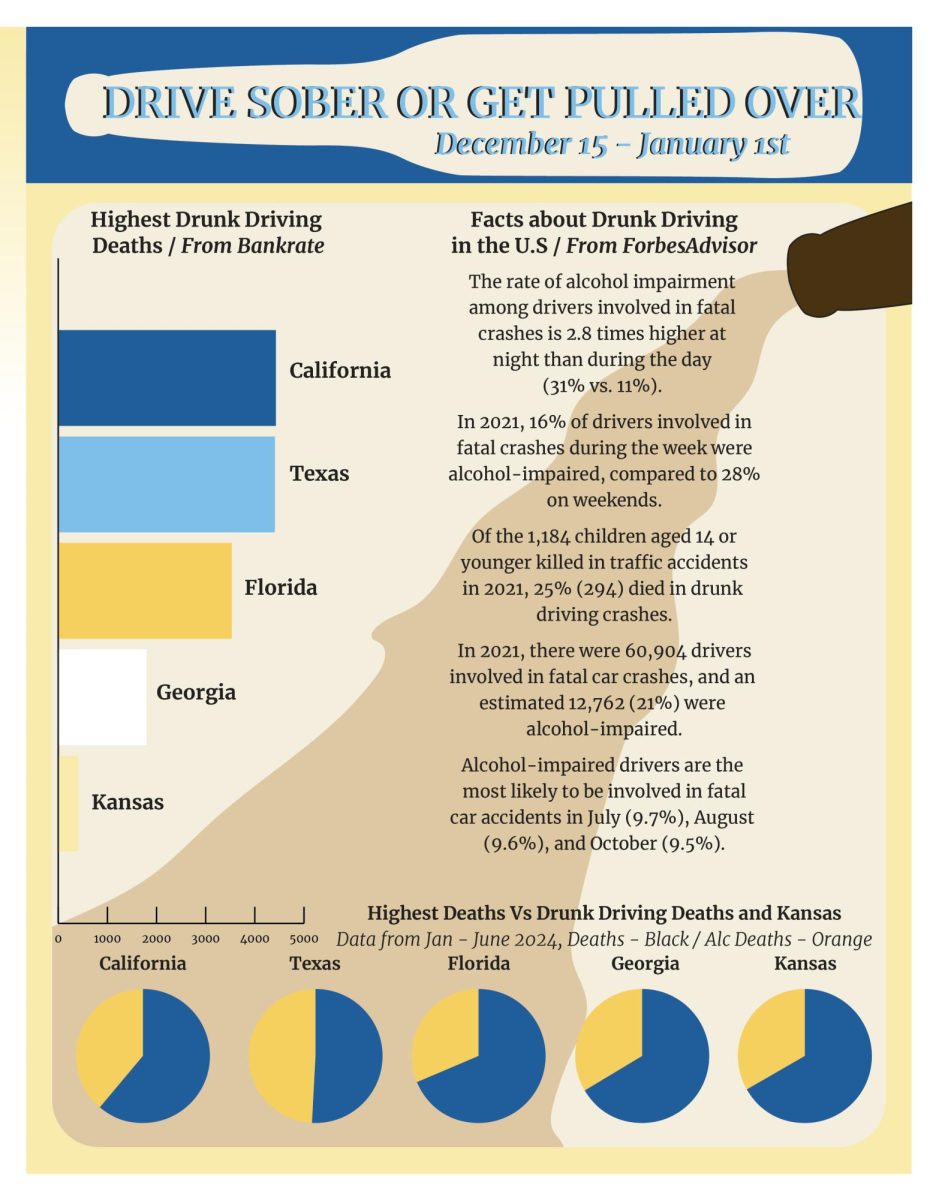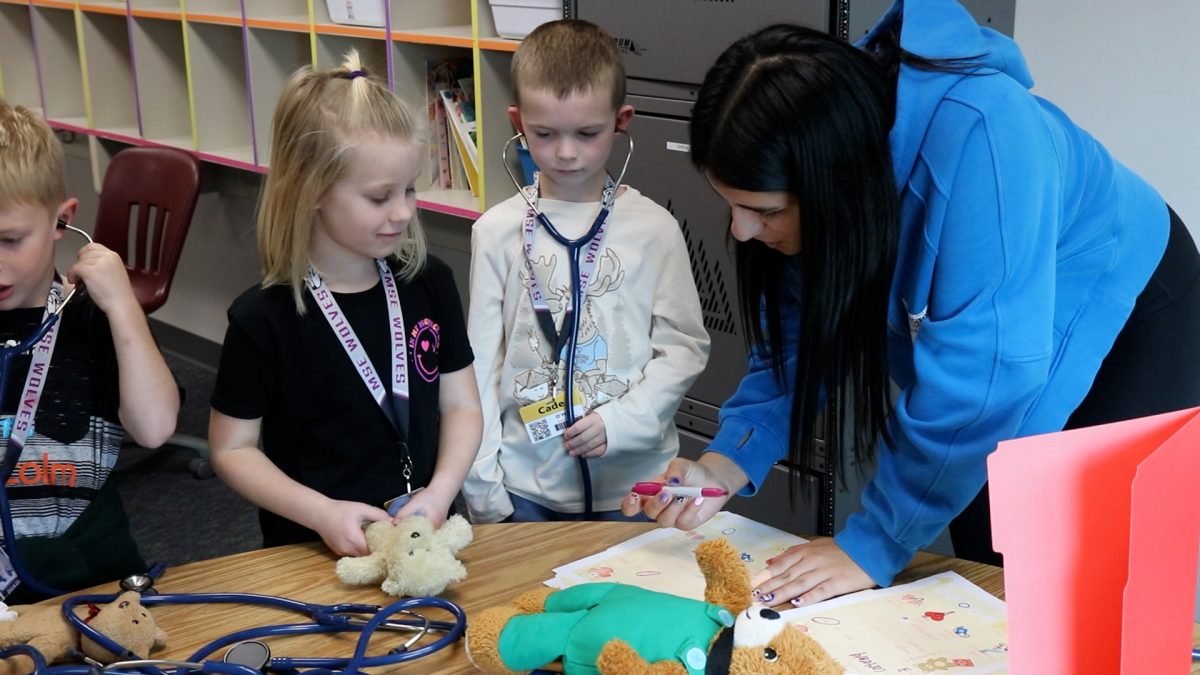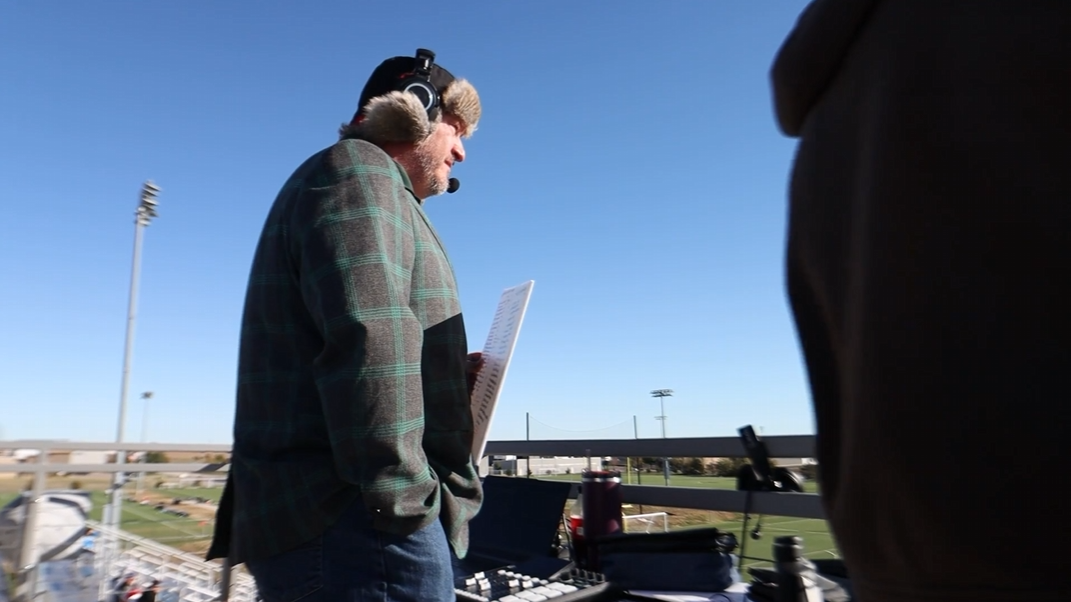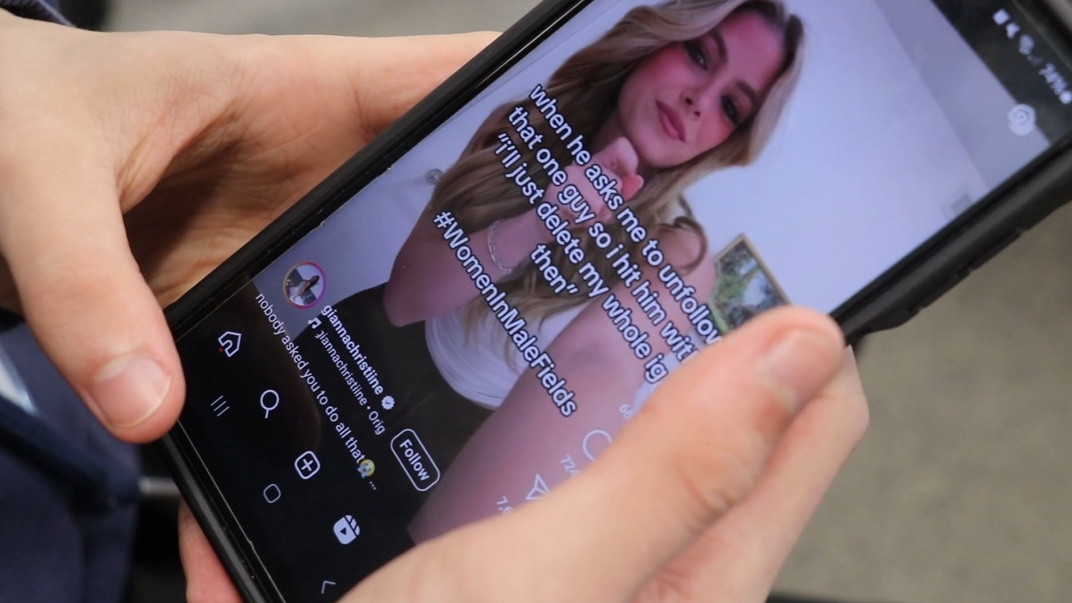Bridging the Gap-The Summer School Plan for 2021
Maize South and Maize High prepare to introduce a by-need program for students to make up their lost credits this June and July.
Photo Courtesy of Maize South Yearbook Staff
Junior Ashton Short sits in his desk and finishes up his math homework on his Chromebook. Math courses are expected to be one of the most needed summer school courses offered in June and July.
April 6, 2021
For the first time in school history, Maize South and Maize High will be offering a free summer school options for students who need to catch up on credits.
With the struggles of a pandemic school year and various learning models changing month to month, students who usually were on the edge of passing found themselves often failing, causing the district to devote time, resources and money towards creating a summer school program to help students earn credits back.
The process of selecting which students will take summer school classes mainly falls on counselors this year to identify who are consistently on the D/F list and have struggled with their grades this year overall.
Head Counselor Adam Melichar is part of the district’s planning committee and will be spending much of his time identifying students in need and those needing assistance to graduate on time.
“The process is going to go through a lot of the counselors in terms of us going through and looking at student’s transcripts and identifying students who still need credits to be recovered to stay on track for graduation,” said Adam Melichar, the A-G counselor at MSHS. “Traditionally, our D/F list was similar in size to what it normally is. The students on it might have been different a little bit, at least some of the average was the same.”
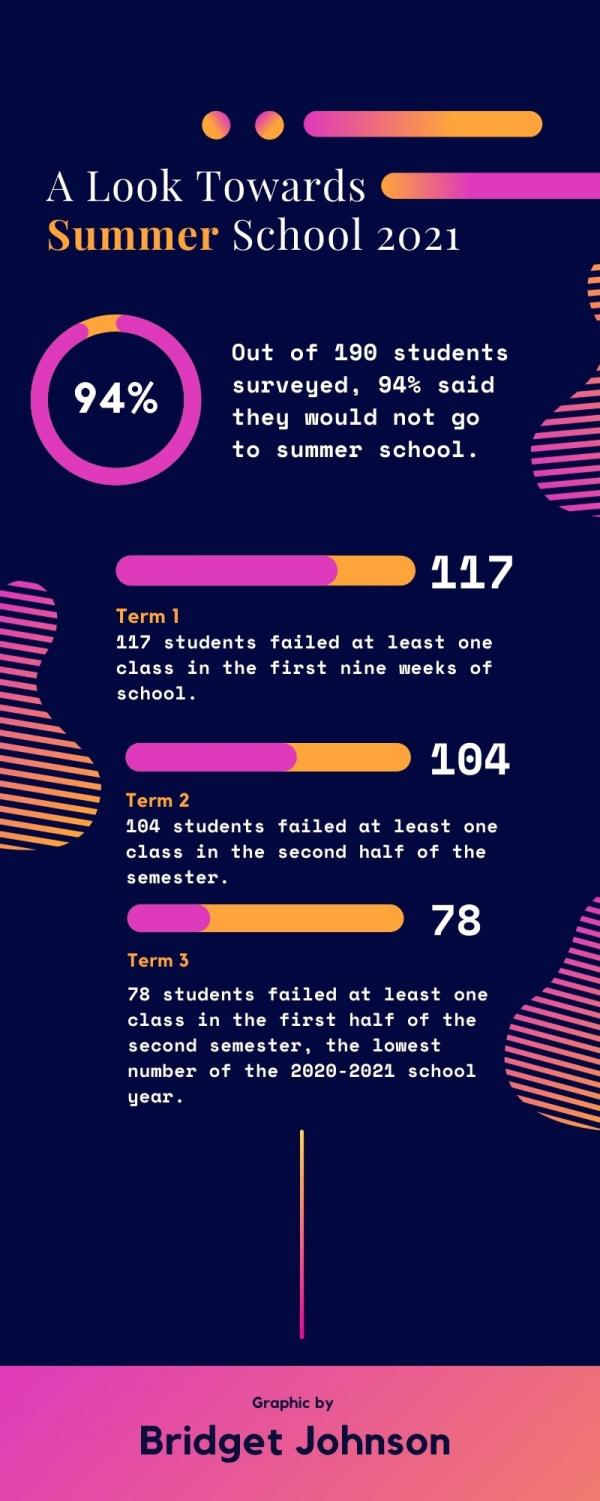
Students this year will be invited to attend the program for a few weeks in the summer and will be chosen based on their needs to gain back credits for graduation. While the schedule has yet to be determined for the program, meetings are happening each week to determine the outlook of the summer school program.
“Let’s say there’s a freshman who is in earth science and they fail the first half and pass the second half. We try to build that first half back into their second semester schedule and so if they pass it, they wouldn’t be eligible necessarily for summer school,” said Melichar. “So what it really is a combination of is probably going to be a number of students who consistently fail core classes they they need for graduation or can be students who are just deficient overall.”
Core classes are expected to be the most needed course offered in the program this summer. Although the exact courses will vary based on need and availability of teachers. Math, English, Science, and History will be prioritized.
“I could pretty much go through and just say the core courses,” said Adam Melichar. Will probably be Algebra One, Geometry, Algebra Two, Earth Science, Biology, maybe some chemistry (but I don’t think we had enough numbers for chemistry), as far as social studies, World History. So those are the primary classes we’re looking at in order to recover some credits in those core areas.”
The fact that students were not physically in person for the first half of the year played a role in how students worked, especially if they had to quarantine for two weeks and, during the first term, miss in person classes for that time.
“We made several exceptions and we extended the deadline, for example, if a student had COVID, let’s say, last week when the term ended, we extended the deadline for grades, I think up to two or three weeks,” said Dave Nash, the assistant principal and summer school administrator. “In the past what we’ve done if a student had missed six days then they run the risk of failing the course, we’re not doing that.”
CJ Richards, a Maize South sophomore, is one student who struggled with the different learning models and may have to attend summer school as a result of his efforts.
“It was hard because I was honestly unmotivated to do the work so sometimes I just would push it off and not do it. My grades were just lagging a little bit, but now that we’re back in school, it’s much easier,” said Richards.
The hope among the district’s leadership team in the district is that the summer school program will provide students with the chance to gain back what they lost during the school year and thrive in ways they haven’t been able to.
“What we’re looking at is what we call executive functions. So kids that just are organized: they turn their stuff in, they know to be at school every day, those types of executive functioning doesn’t necessarily translate into learning. So while you may turn in in your assignment every day at math class, it doesn’t necessarily mean that you gained any ground, you just turned in your homework,” said Nash. “Hopefully we’ll be able to bridge the gap.”
